Silicones on natural hair rock, don’t you think? Plus they’re kind of cool and badass! I mean it gets a bit tiring listening and reading blog posts where silicones are constantly and frequently vilified even though they can do so much for our hair. Were we Middle Age Crusaders and they’d be burned on the cross with a good riddance grin on the face. I think silicones are just soooo misunderstood, especially by those coming into the natural hair community. I know this because I was one of those people who ran from them as if they had the black plague.
The message behind most of the posts I read was a negative one, especially when you coupled the term with natural hair on a Google search. Why? Well because our hair is so fragile and prone to dryness, that silicones have the ability to worsen those traits.
But wait, are you new to this whole natural hair+silicone thing? Well, maybe I need to rewind and give you a little background info just in case. If that’s you I’m talking about, please apologise me as I will be introducing you to a heavyweight subject whose been able to permeate itself throughout most curly hair conversations. Just be warned that this area of discussion is of great relevance, importance and misconception.
As a bonus, just keep reading and you’ll be able to download a Free Silicone Index with 50+ silicone names which check against your products in case you want to avoid them. Or, maybe you just want to know which ones are soluble, that is, easily washed with a sulphate free shampoo so you can follow your Curly Girl hair regimen. Oh, wait that information is there too!
What Are They?
In the cosmetic field, silicones are ingredients meant to provide a conditioning and lubricating effect on our skin and hair. However, their use is not exclusive to our personal care. You’ve probably heard or seen the name associated with things like baby bottle nipples, silicone rubber, children’s toys, breast implants, lubricants and much, much more.
Isn’t it funny how one ingredient can have such opposing purposes? Mind boggling, but hey that’s science for you! Nevertheless, the silicone used for hair and skin purposes is a very oily substance and if we were to use it pure, let’s just say you’d be spending a lot of time washing it off. However, whereas this little jam only needs a 1 – 2% concentration in a formula to do its job, other ingredients in hair care products require a bigger amount. The silicones in our products are what we call man-made, modified or chemically synthesised.
How Good Are They?
So what exactly does this ingredient do? How does it affect our hair? How does it show on our hair? How good (or bad) is it?…. Oh, so many question and so little time for me… Sorry, I was just kidding. Moving on. It’s quite amazing what it does to our hair, let me highlight that for you:
- Soft, velvety feel to our hair
- Reduces friction between hair strands, thus reducing breakage.
- Helps close cuticle layers, thus the soft feeling and reduced friction
- Protects against heat styling tools
- Helps block humidity out, thus reducing frizz
- Reduces static charge
- Locks moisture in (more about this one further down)
- Helps to seal moisture
- Provides slip
- Provides shine
- Colour retention for dyed hair
- Help conditioners facilitate the detangling process
See?! That’s a pretty impressive list, don’t you think? You will often find silicones in shampoos, conditioners, deep conditioning treatments, serums, leave-in conditioners… They’re pretty common. There’s a long list of them, but generally speaking, you can find them in your hair products fairly easy – look for ingredients ending in “cone“, “conol“or “xane“. Silicones do to our hair what we wish our hair to be and feel like. It’s like they are mind readers, really! Yet, even those get it wrong sometimes. And here’s where the doomsday forecast starts.
The Sun Doesn’t Always Shine!
If you’re thinking – “Told you so!” There’s no need to. Of course, silicones aren’t all that. They’re a few things more. (Ahaha) Let’s just be honest about this, nothing is all good and never bad. There’s always another side of the coin. Silicone comes in many sizes and forms since its basic structure lends itself to many chemical variations. The problem is that many of these variations, such as dimethicone have a bad street cred. Why?
Well, this happens because they form a film around the hair strand that closes down its cuticle layers and make it feel soft, smooth and shiny. It is this film that also locks the moisture in and blocks humidity out. So far so good, yeah?! However, silicones only give the appearance of shine and the feeling of softness. In reality, your hair can be dry and have split ends, but the film around it gives you a different perception and feel. For moisture to be kept in, it must first be in there! So, always moisturise your hair first, otherwise, you’re creating a problem.
Another degrading characteristic is the fact that the film deposited on the hair is very hard to remove, and as such creates build up on the hair and weighs it down, many times at the cost of less curl definition. The problem is that most silicones are not water-soluble and as such can only be removed with the use of strong surfactants.
Yes, the kind that strips our curly hair of its natural oil (sebum) and leaves it dry and prone to split ends and breakage. Something no naturalista wants to have and something all transitioners run from given the already fragile situation at the line of demarcation. Let me highlight some of the real disadvantages:
- Creates build up (film) around hair strands
- Film prevents moisture from getting into the hair, thus suffocating it
- Need strong surfactants to be removed
- Weigh the hair down
- Curl looses definition
- Not water-soluble
- Can attract dirt and dust
When I started my journey this was the point where I scratched my head and thought – Umm. No, Thank You! The thing is, with the gazillions of information we get hit by as new natural or transitioners, we only focus on what we want to avoid for our hair. However, we need to process information, weigh in pros and cons and make a judgement call on where a product or technique may be best used or suited. This should make you think.
Looking Under The Surface
Is it you rather not deal with the complexities of silicones plus getting to know and learning to deal with your moody kinky hair and so you give up? For me, it was something like this. However, information is knowledge and it’s only by doing that we learn how to do it. Not all silicones are the same! Some are water-soluble and behave differently. These silicones can easily be removed with a sulphate free shampoo and some with your regular co-washing conditioner. That’s why followers of the Curly Girl Method only use products with them in it.
As a general rule, to identify them on your products they’re generally preceded by the abbreviation “PEG” or “PPG“, but there are others in this category such as Lauryl Methicone Copoloyl. Then there are gentler ones that slow down the build up process, but still need to be removed with a regular shampoo.
So, we could say there are only two types of silicones – water soluble and water insoluble. The problem lies in knowing which ones are which and in here lies another major discouraging reason to get to know silicones. There’s too many of them, plus they keep being added so it’s hard to keep track of them. However, some are most commonly use and where there’s a will there’s a way. I’m sure you’d soon be able to spot them.
If not, you could always check the names against the database of websites like cosmeticsinfo.org or ewg.com. However, this can take time and who has time for that, right? Alternatively, you could scan around the web for a list of these, but this sounds even more painstaking than the other option. Or maybe, who knows… you could download or print the free list of 60+ silicones below. The list is divided by their solubility with information on approved silicones for the CG Method and which surfactants clean them best. If you feel this is something you might be interested in click on the link below.
Where Are We At Then?
Are you still confused, as to why I said I think silicones rock after the shock list of negative effects on the hair? Well, hellooo!?… have you seen the long list of good things they do to our hair too? (please go back and check again!) I just think they can be really useful at protecting our hair, plus I wanted to grab your attention.
I want you to know that by vilifying and cutting silicones off our hair regimens we are denying ourselves of all the benefits they can provide us. Yes, they can be very detrimental to the health of our hair but only if we don’t educate ourselves about them, and this is what I tried to do here with this post (and hopefully accomplished).
Each hair is like a fingerprint, and as such will react differently to different products and there’s also the fact that products can have good and bad formulas. Some people don’t complain of build up while others using silicones do. Maybe they’re using water soluble ones, or maybe they need to wash their hair more frequently or maybe tone down their use. The key here is to try and see what your hair likes and how it feels.
If you use non-water soluble silicones use a regular shampoo or a clarifying one to remove them. If not, you’re OK with a sulfate free shampoo or a washing conditioner.
Having said that, I would stay away from film forming silicones and instead look only for products with water soluble ones in it. Please, understand that I’m not advocating their regular use. I’m just saying its OK to use them when you need them, you just need to know which ones so you can follow up with appropriate hair care practices.
If you use a heat protectant on your hair you will need to use a regular or clarifying shampoo to remove it. Another important call out I’d like to make is that many people don’t think of silicones as being present in shampoos (I know I didn’t), but they are. Therefore, if you’re only looking for rinse out silicones in all your other hair products be careful! Your shampoo could be the source of your build up.
Keep in mind that build up is inevitable and over time, it will happen with natural ingredients or even water soluble silicones. So staying away from them to avoid using strong surfactants is somewhat pointless. The difference is on which silicones you use and how often you use them.
Oh, and don’t forget to grab your list of 50+ silicones to get you started. If you like this little resource I made for you, please don’t forget to like and share this post.
How do you feel about using silicones? Are you scare of them? Do you use them in your hair regimen? How and when do you use them?
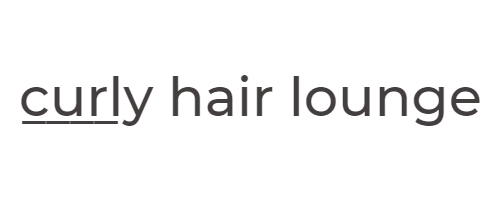

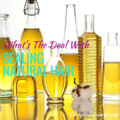
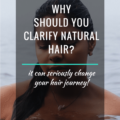
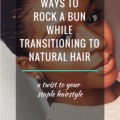
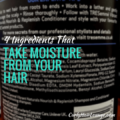
16 thoughts on “Why Silicones On Natural Hair Just Rock!”
Thanks for the information ! There’s lots I didn’t know .
So glad you found this information useful, Rossie!
Great article thanks – it was all well explained and yes there is a lot of negative posts about silicone. Refreshing to get the real low-down on why it is so popular!
Everything has it’s place right? And silicone is no exception 🙂
Yes, Kelly! Silicone for hair has a place in a natural hair regimen, it’s important people know all the facts and make a knowledgeable decision. There’s no reason why it can’t be used in our favour. 🙂
My protein pack contains a lot of non water soluble silicones. I shampoo with a sulphate free shampoo and recently bought a clarifying shampoo. Will using it every week cause buildup in my hair. They are dimethicone, dimethiconol, cyclopentasiloxane, amodimethicone, and hydrolysed wheat protein.
Yes, these silicones will cause buildup if used weekly in a product. A sulphate free shampoo will not be able to remove them all. A clarifying shampoo would, but this is shampoo not to be used weekly, it’s too stripping.
I tried following the no silicone rule and wear my hair in its natural curly state and I have never had more knots and tangles in my life, I was snatching and breaking hair no matter how gentle I was being with it. After a long while (years) I just used what worked for my hair, silicone products, heat straightening and protein for strength. My hair is down my back now, no broken pieces, very thick and healthy. I wear it straightened with waves from large overnight braid. Never in its curly knotted state anymore. So much easier to maintain and keep healthy now. Thank you slippery silicones!!!
Hi Mesha, thanks for sharing your experience. Just to be clear the ‘no silicone’ rule means no insoluble silicones, but you can still use soluble ones which work just as well. However, the key thing to keep in mind is that if you know the ingredients in your products and how to offset any possible bad effects they have so you can maintain your hair healthy and you’re happy with your choice than do it. It may take some more effort/attention, but that is your choice. 🙂
I’m in an extremely dry environment in Colorado and my curls are lifeless. Would you recommend and specific curl styler containing water-soluble silicones to help with shine and moisture? (Without sacrificing volume which I’ve lost here too!) thx!
Hi Paith, stylers differ depending on how you want to style your hair (e.g. wash and go or braids), if you like volume or not, your environment your the current hair health and your hair care practices (does it need protein or not, do you use heat or not, how frequently). For recommendations, we would discuss this and more in a video session. Still, you can find posts in the blog (like here and here) with some of the products or brands I like to use.
Hi, is the Silicones List document still available? The links in this article are not working. It would be really great to see the website have a “library” where all of your guides are stored! Thank you 🙂
Hi Kristin, the digital guides are no longer available, sorry.
This was such great info!
Lots I didn’t know.
Thank you
Thank you Lisa, I’m glad it helped you.
Hi! Thank you for the helpful tips! I’d love to share your page but I tried clicking on the link for the list of 50 + silicones and it’s seem the page is no longer available? Do you still have this available ?
Hi Alexandria, the list is no longer available as well as all other free digital resources.